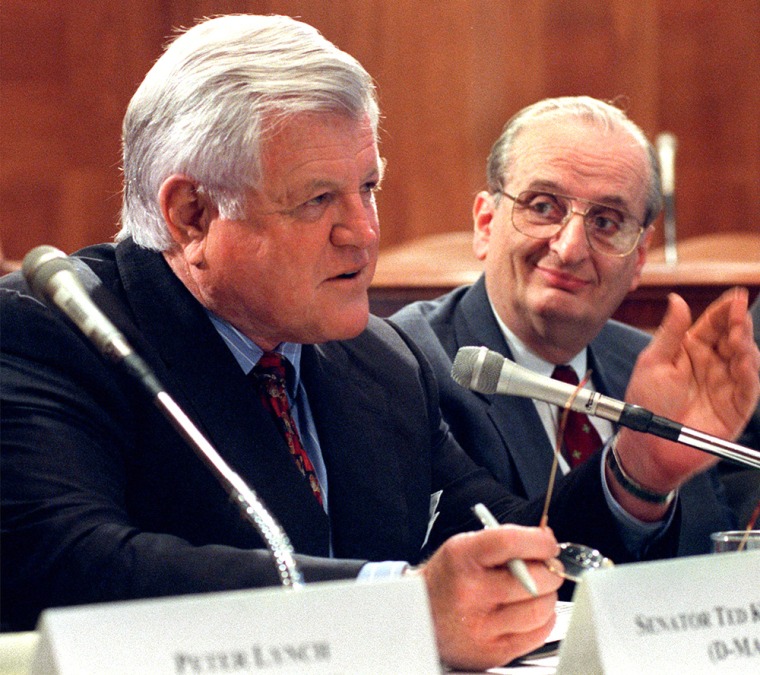Dr. Judah Folkman, a groundbreaking cancer researcher whose work cured the disease in mice and gave hope for a cure in humans, has died. He was 74.
Folkman died late Monday, said Elizabeth Andrews, a spokeswoman at Children’s Hospital Boston, where Folkman was director of the vascular biology program. Robert Cooke, who wrote the book “Dr. Folkman’s War: Angiogenesis and the Struggle to Defeat Cancer” said he died in Denver of an apparent heart attack.
Folkman’s research focused on cutting off the blood supply that cancer cells need to grow, called angiogenesis, and cured mice of the disease. Although that success has not carried over into humans, his work opened the door to a whole new line of treatment that has slowed the growth of cancer in humans and shown success in treating a variety of other diseases.
“Is it a cure? No, but his idea is to drive tumors into dormancy and for that, it works,” Cooke said. “It’s been turned into a disease like diabetes that can be managed.”
Folkman’s research dates to the 1960s when he worked at the National Naval Medical Center in Bethesda, Md., as a lieutenant in the U.S. Navy. He and a colleague, working with rabbits and mice, noticed that cancerous tumors stopped growing when removed from a body, then started growing again when implanted in another animal.
“That was the clue that set him off,” Cooke said. “He reasoned there was some barrier that stopped those tumors from growing. And after years of banging his head against the wall he realized that it was the blood supply.”
He carried on the work in relative anonymity until a May 1998 front-page story in the Sunday New York Times, in which Dr. James Watson, the Nobel laureate and co-discoverer of the shape of DNA, was quoted as saying, “Judah is going to cure cancer in two years.”
“That set off a fuss, and many of his colleagues were all upset because it was too radical an idea, they said it can’t be all that simple,” Cooke said.
Folkman’s lab had discovered two natural compounds, called endostatin and angiostatin, that appear to be powerful cancer fighters, at least in mice. When the mice were given the drugs, their tumors shrank and disappeared.
His discoveries prompted pharmaceutical companies to pursue research in the area, and some drugs have succeeded in extending the lives of patients with advanced cancer.
“The work that he has done is now the basis of billions of dollars of research around the world,” said Dr. Jim Mandell, the president and CEO of Children’s Hospital Boston, who has known Folkman for three decades. “The fact that other scientists picked up the work that he did made him tremendously happy.”
